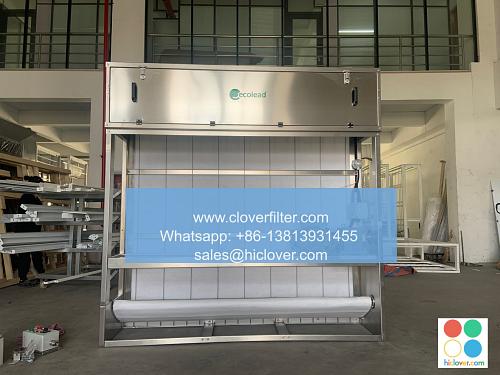Air Filter Systems for Home Healthcare Facilities

As the world grapples with the challenges of pandemics, infectious diseases, and rising healthcare costs, home healthcare facilities have become an essential part of the healthcare continuum. These facilities provide a safe and comfortable environment for patients to receive medical care and therapy in the comfort of their own homes. However, to ensure the well-being and safety of patients, caregivers, and staff, it is crucial to maintain a clean and healthy indoor air environment. This is where Air Filter Systems for Home Healthcare Facilities come into play.
Importance of Air Filtration in Home Healthcare
Air filtration is a critical component of infection control and prevention in home healthcare facilities. Airborne pathogens, such as influenza, tuberculosis, and MRSA, can spread quickly in indoor environments, putting vulnerable patients at risk. Additionally, indoor air pollution from sources like cooking, cleaning, and volatile organic compounds (VOCs) can exacerbate respiratory conditions like asthma and COPD. Effective air filter systems can help remove these contaminants, improving indoor air quality (IAQ) and reducing the risk of infection and disease transmission.
Types of Air Filter Systems for Home Healthcare
There are several types of air filter systems available for home healthcare facilities, each with its own unique features and benefits. Some of the most common include:
* HEPA (High Efficiency Particulate Air) filters, which can capture 99.97% of particles as small as 0.3 microns, including bacteria, viruses, and fungi
* Activated carbon filters, which can remove odors, gases, and VOCs from the air
* UV (Ultraviolet) light filters, which can kill bacteria, viruses, and other microorganisms using UV radiation
* Ionizers, which can attract and remove particulates and contaminants from the air using electrostatic charges
Application Areas for Air Filter Systems
Air filter systems can be applied in various areas of home healthcare facilities, including:
* Patient rooms and bathrooms to reduce the risk of infection and disease transmission
* Therapy rooms and gymnasiums to improve indoor air quality and reduce the risk of respiratory problems
* Kitchens and food preparation areas to remove cooking odors and grease particles
* Laundry rooms and storage areas to reduce the risk of mold and mildew growth
Benefits of Air Filter Systems for Home Healthcare
The benefits of air filter systems for home healthcare facilities are numerous, including:
* Improved indoor air quality and reduced risk of infection and disease transmission
* Enhanced patient comfort and well-being
* Reduced risk of respiratory problems and other health issues
* Increased efficiency and productivity of caregivers and staff
* Cost savings through reduced energy consumption and extended equipment life
Conclusion
In conclusion, air filter systems are a critical component of home healthcare facilities, playing a vital role in maintaining a clean and healthy indoor air environment. By removing airborne pathogens, indoor air pollution, and other contaminants, these systems can help reduce the risk of infection and disease transmission, improve patient comfort and well-being, and enhance the overall quality of care. Whether you’re a home healthcare provider, caregiver, or patient, investing in an effective air filter system can be a breath of fresh air. It seems like you forgot to include the actual prompt. Please go ahead and provide the question or topic you’d like to discuss, and I’ll do my best to assist you.

